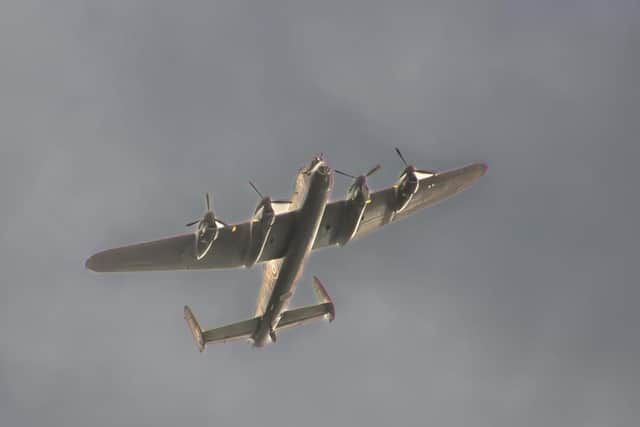Banbury photographer shares stunning picture of Lancaster from Sunday's Battle of Britain commemoration
and live on Freeview channel 276
Maureen Tyrrell was one of a number of photographers who took advantage of the rare fly-past of the historic aircraft.
The Lancaster flew low over Banbury after Sunday’s Battle of Britain parade – an annual event held by Banbury Town Council to commemorate all those who contributed to the infamous aerial battle in 1940.
Advertisement
Hide AdAdvertisement
Hide AdIt was first major military campaign fought entirely by air forces, waged by the RAF and the Fleet Air Arm (the aerial arm of the Royal Navy). The battle went on from July 10 until 31 October 1940, mainly in the skies over southern England. It was the first major British defeat over Germany in the war.


Britain’s bomber command, including Lancasters, disrupted German preparation of converted barges with which it threatened an invasion.
Banbury’s aluminium factory, Alcan, was vitally important to the war effort in providing material for the construction of aircraft for the battle. And in a bid to protect the works, a ‘dummy’ factory was built two miles outside the town to fox any German bombers attempting to destroy production.
The factory produced half the needs of the aircraft industry – some 1,600 tons of strong alloy sheet and 1,000 tons of strong alloy extrusions per month.
Advertisement
Hide AdAdvertisement
Hide AdIt was one of the first factories to be camouflaged against air attack and had four anti-aircraft guns posted on its perimeter for most of the duration of the war.
During the Battle of Britain, in September 1940, Banbury lock was hit by a 500lb bomb intended for the factory.